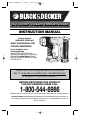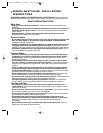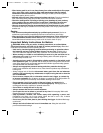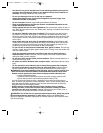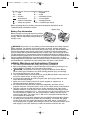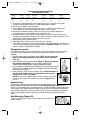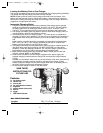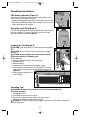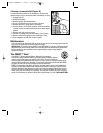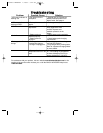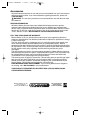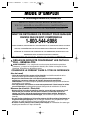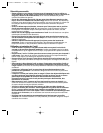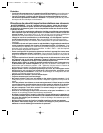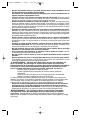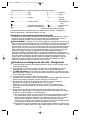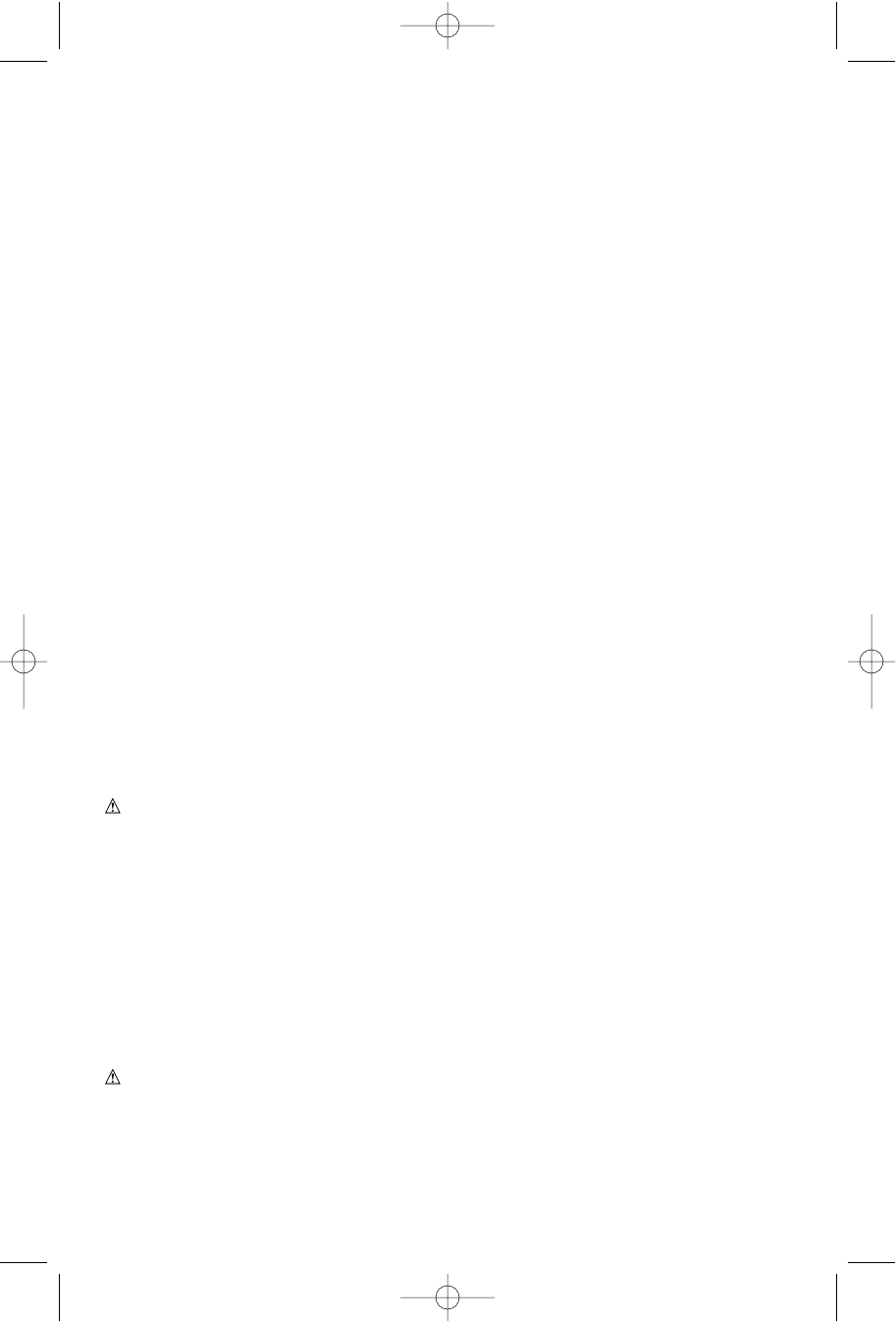
4
• Use the tool only for its intended use. Do not discharge fasteners into open air,
concrete, stone, hardwoods, knots or any material too hard for the fastener to
penetrate. Discharged fasteners may cause injury.
• Do not use the body of the tool or top cap as a hammer.
• Always keep fingers clear of nail track of magazine to prevent injury from
inadvertent release of the pusher.
• Do not overreach. Maintain proper footing and balance at all times.
• Refer to the Maintenance and Service sections for detailed information on the
proper maintenance of the tool.
• Always operate the tool in a clean, lighted area. Be sure the work surface is clear of
any debris and be careful not to lose footing when working in elevated environments
such as rooftops.
• Do not drive fasteners near edge of material. The workpiece may split causing
the fastener to ricochet, injuring you or a bystander. Be aware that the nail may
follow the grain of the wood, causing it to protrude unexpectedly from the side of the
work material. Drive the chisel point of the nail perpendicular to the grain to reduce
risk of injury.
• Keep hands and body parts clear of immediate work area. Hold workpiece with
clamps when necessary to keep hands and body out of potential harm. Be sure the
workpiece is properly secured before pressing the nailer against the material. The
contact trip may cause the work material to shift unexpectedly.
• Do not use tool in the presence of flammable dust, gases or fumes. The tool may
produce a spark that could ignite gases causing a fire. Driving a nail into another nail
may also cause a spark.
• Keep face and body parts away from back of the tool cap when working in
restricted areas. Sudden recoil can result in impact to the body, especially when
nailing into hard or dense material.
• Do not drive nails onto the heads of other fasteners. Recoil, jammed fasteners, or
ricocheted nails may result.
• Be aware of material thickness when using the nailer. A protruding nail may cause
injury.
• Do not actuate the tool unless the tool is placed firmly against the workpiece.
• Do not drive nails blindly into walls, floors or other work areas. Fasteners driven
into live electrical wires, plumbing, or other types of obstructions can result in injury.
WARNING: Some dust created by power sanding, sawing, grinding, drilling, and
other construction activities contains chemicals known to cause cancer, birth
defects or other reproductive harm. Some examples of these chemicals are:
• lead from lead-based paints,
• crystalline silica from bricks and cement and other masonry products, and
• arsenic and chromium from chemically-treated lumber (CCA).
Your risk from these exposures varies, depending on how often you do this type of
work. To reduce your exposure to these chemicals: work in a well ventilated area, and
work with approved safety equipment, such as those dust masks that are specially
designed to filter out microscopic particles.
• Avoid prolonged contact with dust from power sanding, sawing, grinding,
drilling, and other construction activities. Wear protective clothing and wash
exposed areas with soap and water. Allowing dust to get into your mouth, eyes, or
lay on the skin may promote absorption of harmful chemicals.
WARNING: Use of this tool can generate and/or disperse dust, which may cause
serious and permanent respiratory or other injury. Always use NIOSH/OSHA
approved respiratory protection appropriate for the dust exposure. Direct particles away
from face and body.
90514937 BDBN1202 1/18/07 9:14 AM Page 4



